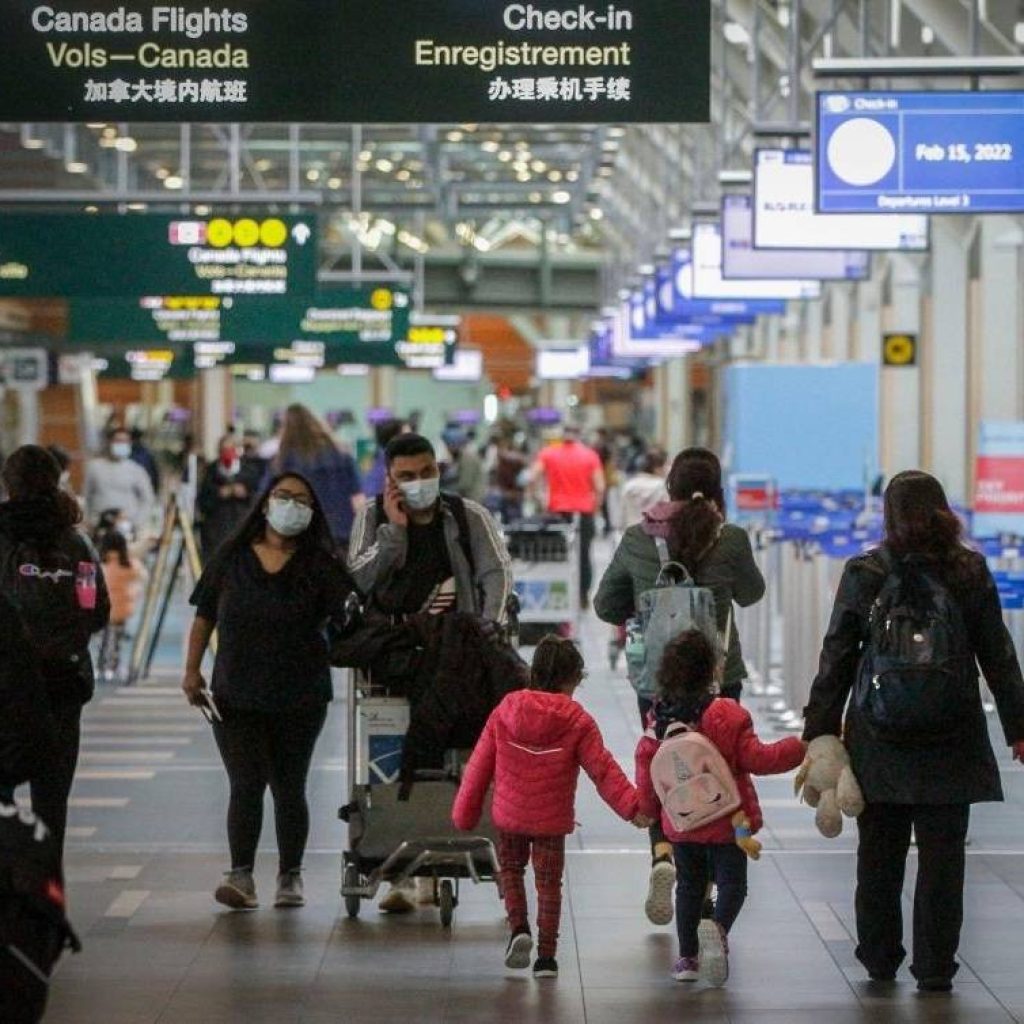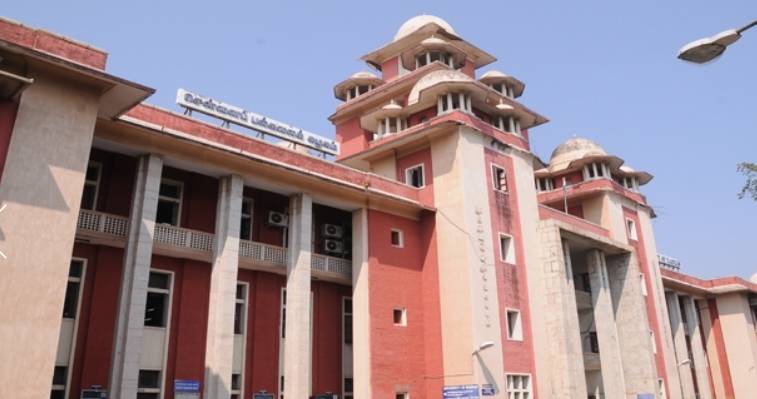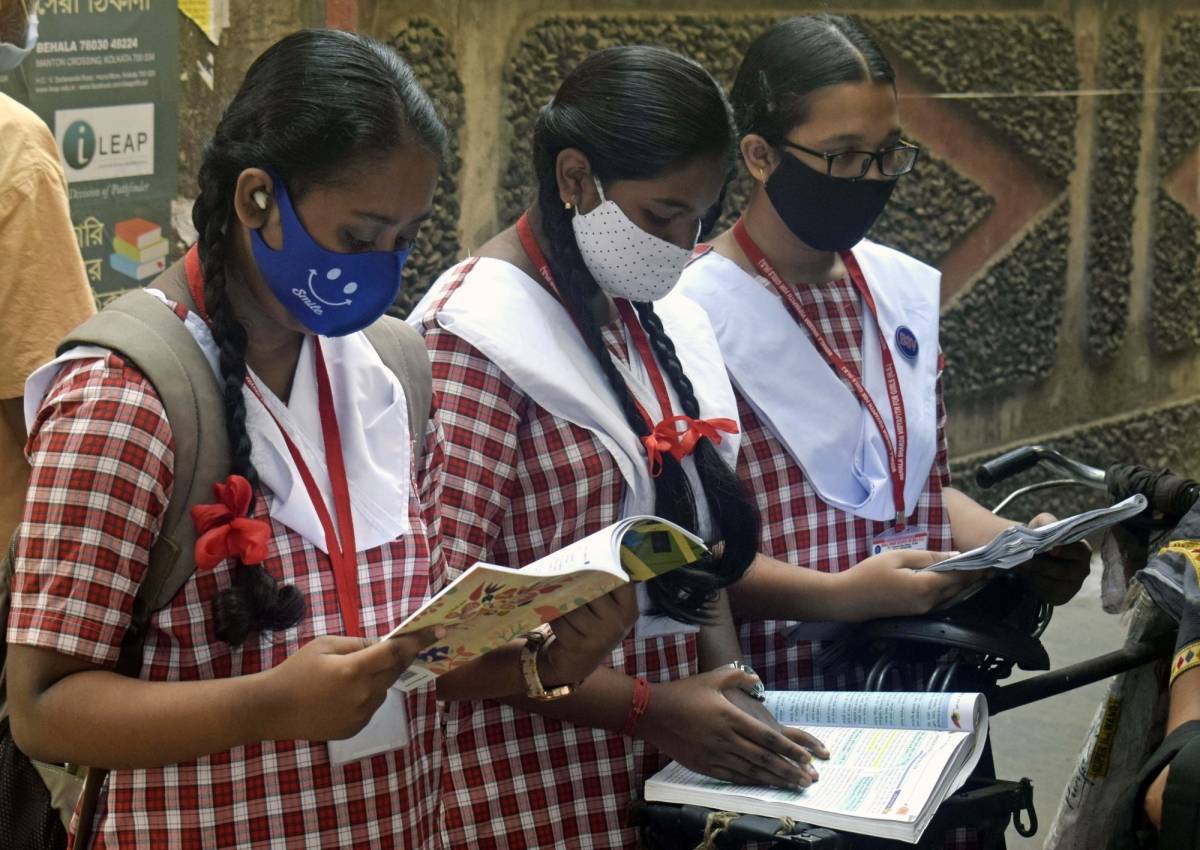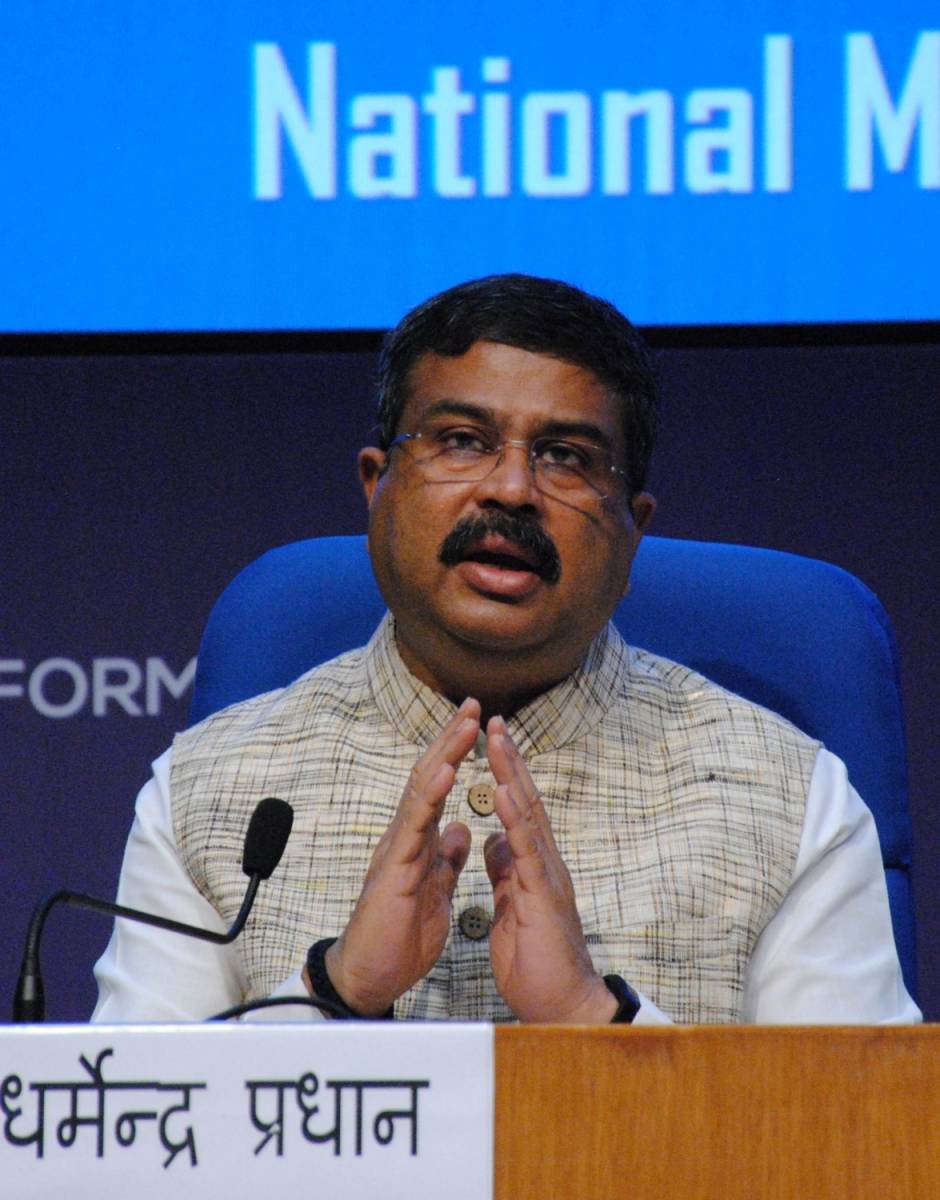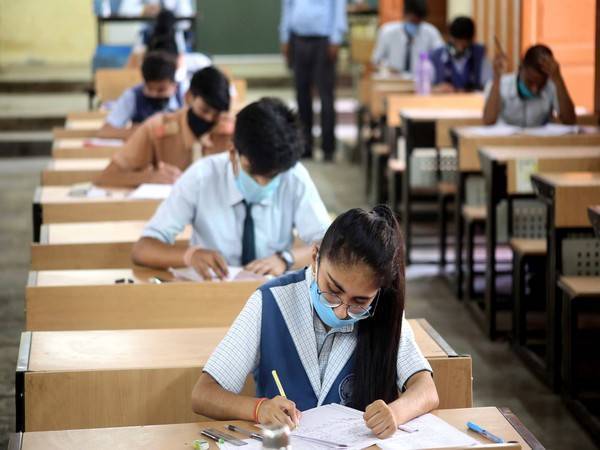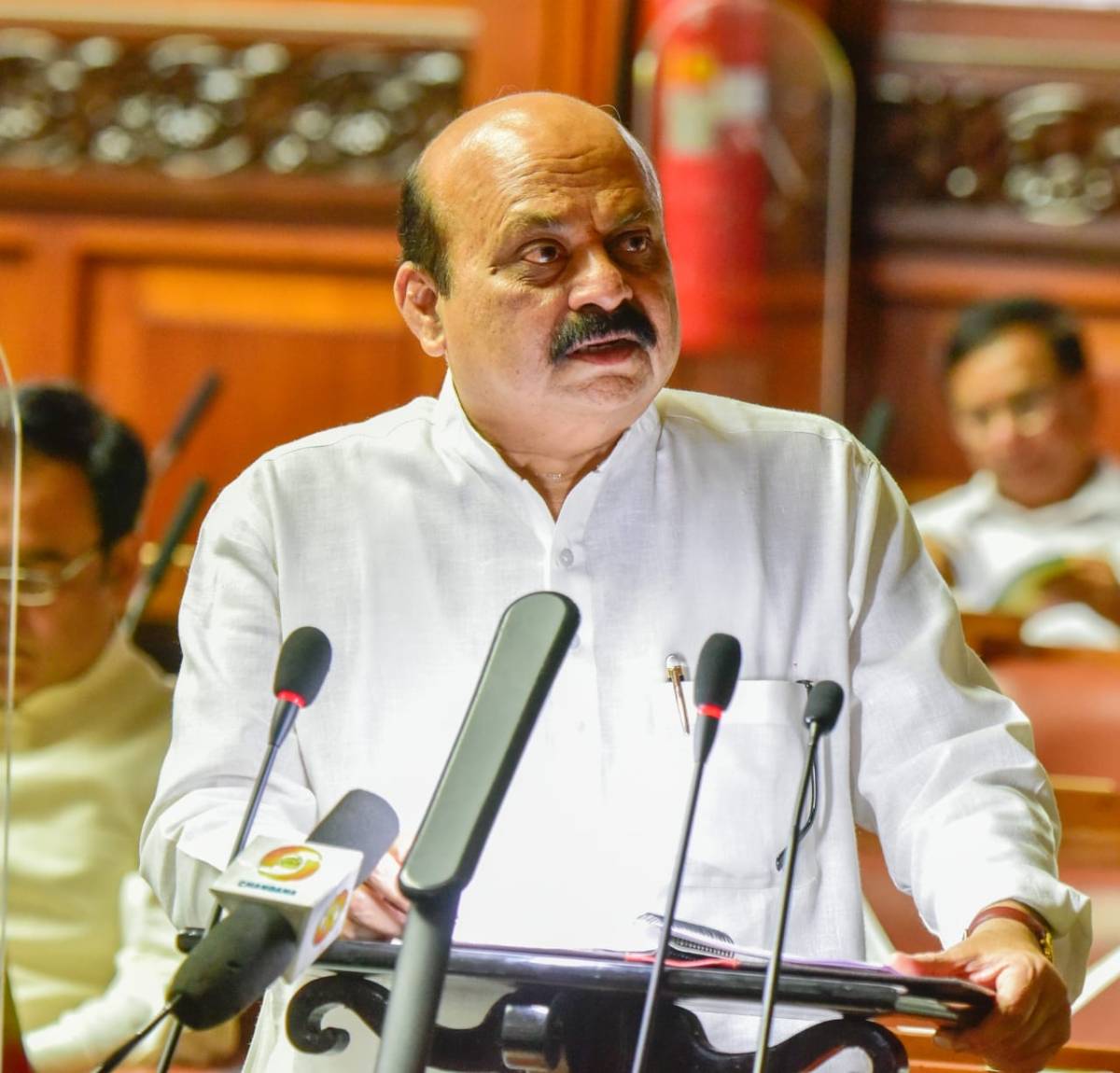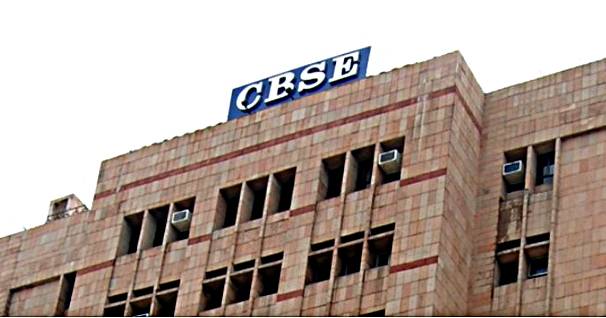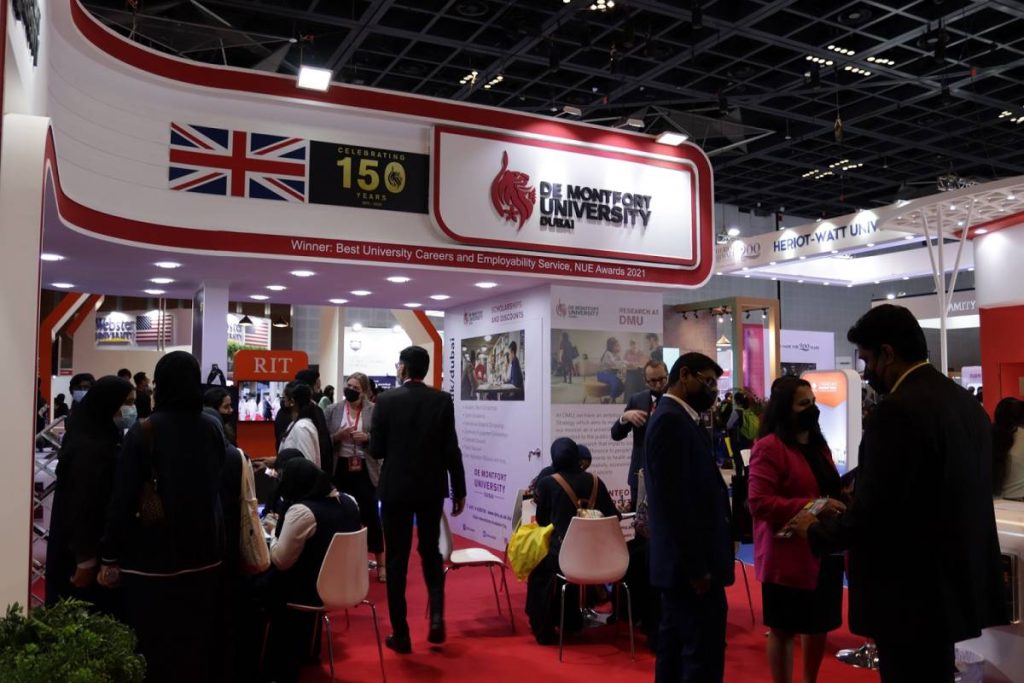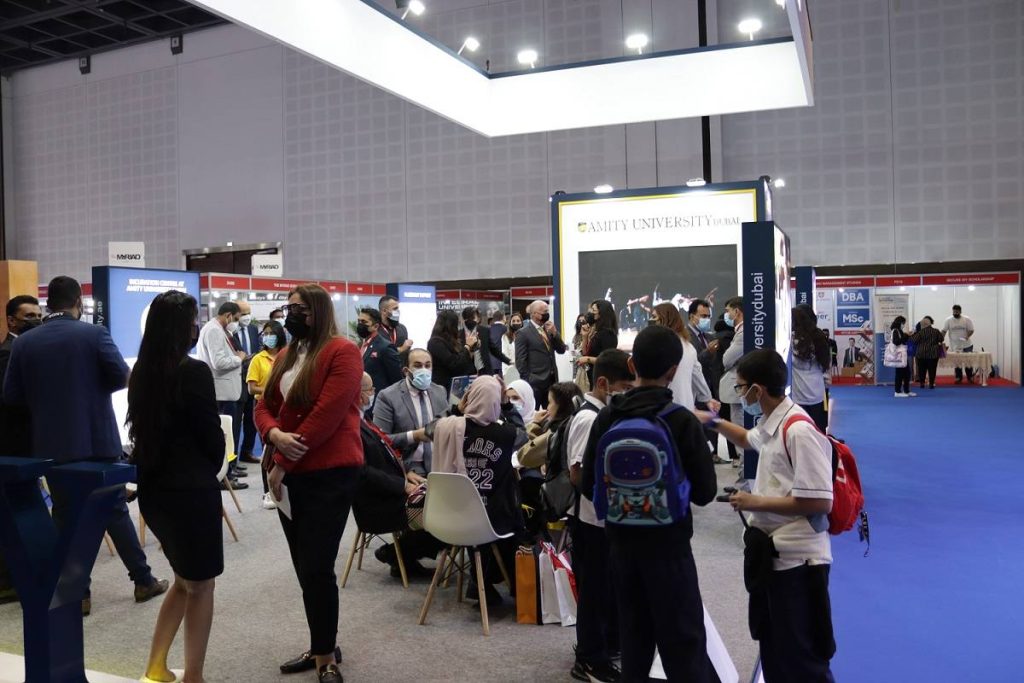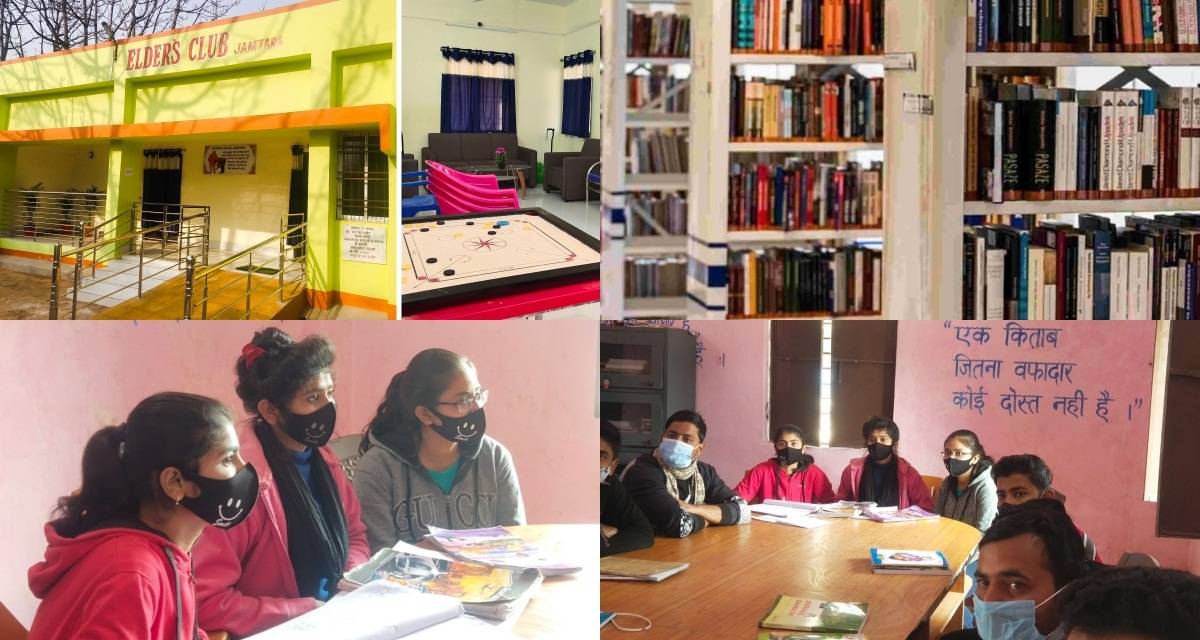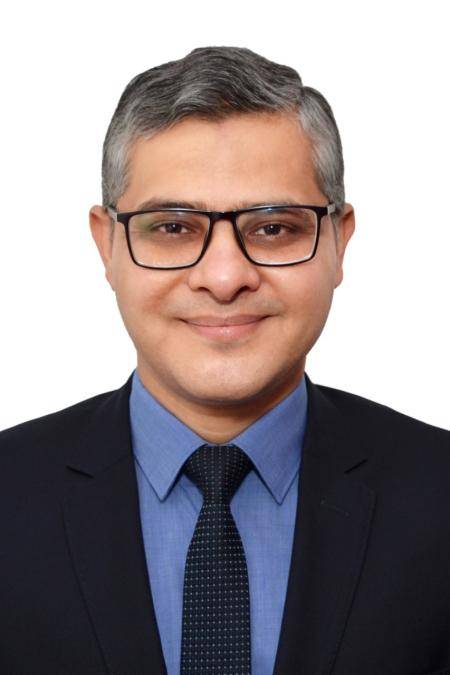The youth are so dedicated to the library and its impact on the community, that they express their desire to lend financial support once they are gainfully employed in the future…reports Prawin Kumar Tiwary
Determined to shake off its negative association with cybercrime and firmly place Jharkhand’s Jamtara on the road to reform, IAS officer and District Magistrate Faiz Aq Ahmed Mumtaz has launched community libraries in all 118 panchayats across six blocks of the district.
Once associated with the great social reformer and educationist Ishwar Chandra Vidyasagar, who spent the last two decades of his life here dedicated to the upliftment of the tribals and the less privileged, Jamtara has now become infamous for cybercrimes like phishing.
Things began to take an ugly turn around 2013 with criminals like Sitaram Mandal and Pappu Mandal. They conducted operations that duped unsuspecting people who merely answered their phones with a simple “hello” and ended up losing lakhs of rupees from their bank accounts. Many high-profile scams across India are linked to Jamtara, with investigation teams making regular visits to these parts. Veteran Hindi film star Amitabh Bachchan is said to have lost Rs 5 lakhs through Jamtara’s phishing racket. Similarly, Rs 23 lakhs are said to have been siphoned from the account of Preneet Kaur, MP and wife of former Punjab Chief Minister Amarinder Singh.
“We are moving towards creating a new society. People should look at these community libraries as temples and mosques, and approach them in the same way,” said DM Mumtaz. He further added that 125 dilapidated buildings in Jamtara were renovated for the community libraries registered under the Societies Act. Some of the buildings have also been converted into elder clubs’ for senior citizens, a place for them to socialise.
All 1,161 villages serviced by community libraries
The first community library in Jamtara became operational on November 13, 2020 at Chengaidih panchayat. This was followed by launching public reading spaces in the rest of the district, by renovating and converting dilapidated old panchayat buildings and Anganwadi centres. Resources from the CSR fund and the budgets of the 14th and 15th Finance Commission were allocated to the panchayats for this project. Funds ranging from Rs 60,000 to Rs 2.50 lakhs have been spent on each community library.
All the libraries are equipped with water supply, electricity, emergency lights, water filters, book cupboards and blackboards. The floors have been carpeted and reading is facilitated through a round table system. Each library has honorarily elected presidents, treasurers and librarians. To help children continue with their education during the pandemic, two teachers were appointed at each community library who taught maths and science to children.
Besides educational and competitive exam textbooks, the Jamtara community libraries are also populated with literary books. The Jiajori Library houses books such as History of Hindi Literature, India After Gandhi, Discovery of India, books by Premchand and Dinkar, and late President APJ Abdul Kalam’s Agni ki Udaan.
With all 1,161 villages of Jamtara connected to 118 panchayat community libraries, District Education Officer Abhay Shankar points out the growing awareness among the youth. Some of the young boys walk up to 1.5 km to avail the library facilities.
‘First step of the journey’
“Jamtara has become associated with the ‘cottage industry’ of phishing. The youth are easily absorbed into the cybercrime racket, so our priority is to save them from this and include them into the mainstream. It is our endeavour to inculcate the habit of reading in the youth. This is just the first step of the journey,” said Sub-divisional Magistrate Sanjay Pandey.
The library also hosts various classes, mostly geared towards competitive exam preparation. Apart from this, they also get volunteers from the administration and police force to conduct motivational and informative sessions. Pandey himself teaches history and mind power techniques as part of the community classes in the library.
At the Jiajori Community Library in Jamtara, students can be found studying even at 8 p.m. The community library in the Muslim-dominated Jiajori sees around 30 boys and young men who are regular visitors. Mohammed Firoz Ansari, an MTech graduate from Lucknow University, is now preparing for competitive exams at the library after quitting his job at a private company. Since the library opened, B.A. graduate Ahzaruddin has successfully cleared the Jharkhand Panchayat Secretary Appointment Examination and is awaiting his appointment.
The youth are so dedicated to the library and its impact on the community, that they express their desire to lend financial support once they are gainfully employed in the future.
Jamtara’s girls are not far behind
While the female literacy rate in Jamtara is comparatively lower, some girls have begun stepping out of their homes to visit the community libraries. Sanjeeda Khatoon, a young girl from Jiajori, was recently appointed as an assistant professor at a college outside Jamtara, after being able to continue her studies at the community library.
At the Khaira Community Library in Nala, a remote block of Jamtara district, we met Class 11 students Muskan Dokania, Madhumita Sadhu and Aastha Dokania. They informed us that the community library helps them study together, which they couldn’t do at home earlier. Nafisa Kausar, Kashish, Neetu Kumari, Megha, Pinky, Payal and Dolly are among the other girls who visit the library daily. “I like studying and I want to become a doctor. The library is a peaceful place and one can read newspapers here too,” expressed Kausar.
Nala village headman Alokki Soren, who has been working tirelessly on the community library project, noticed the atmosphere changing at homes with parents becoming more aware. “Efforts have been made to provide facilities in the libraries. Now it is our responsibility to run it smoothly,” Soren added.
‘Change is in the air’
The youth are more determined than ever to recharter Jamtara’s path to progress. Rishabh, from Mihijam town said, “Jamtara has become synonymous with cybercrime. This slander bothers us and we wish to get rid of it.”
Santosh Kumar Mandal, Shubham Gupta and Vishnu Kumar Mandal, who study at the Charghara Community Library, rue the fact that cybercrime has spread near their homes luring the youth to a reprehensible life of crime. However, they are determined to study hard and build a strong foundation for their futures.
Jamtara resident Ravindra Dubey (70), who has been associated with social service and politics, remarked: “Change is in the air here. Earlier, there were no facilities for students in rural areas. Poor children did not even have money to buy books to prepare for competitive exams, but now they are easily available at the library.”
‘We don’t discuss politics here’
Apart from the youth-targeted community libraries, an elder club project has also been launched in the six blocks of Jamtara. These recreation centres for senior citizens have been built at the block headquarters. Elder community members gather here to socialise and find a sense of camaraderie. Arjun Kumar Mandal, a member of the Nala Elders Club, said: “We often get lonely so the club has become a source of support in our old age. We don’t discuss politics and have found a new way of living by spending time together.”
Besides watching television, members can also engage in games such as carrom, chess and cards. A medical team arrives once a month to conduct health checkups. A monthly membership fee of Rs 100 is collected from pensioners and Rs 50 from others.
ALSO READ-Yogi makes mafia dons lose clout in UP elections

